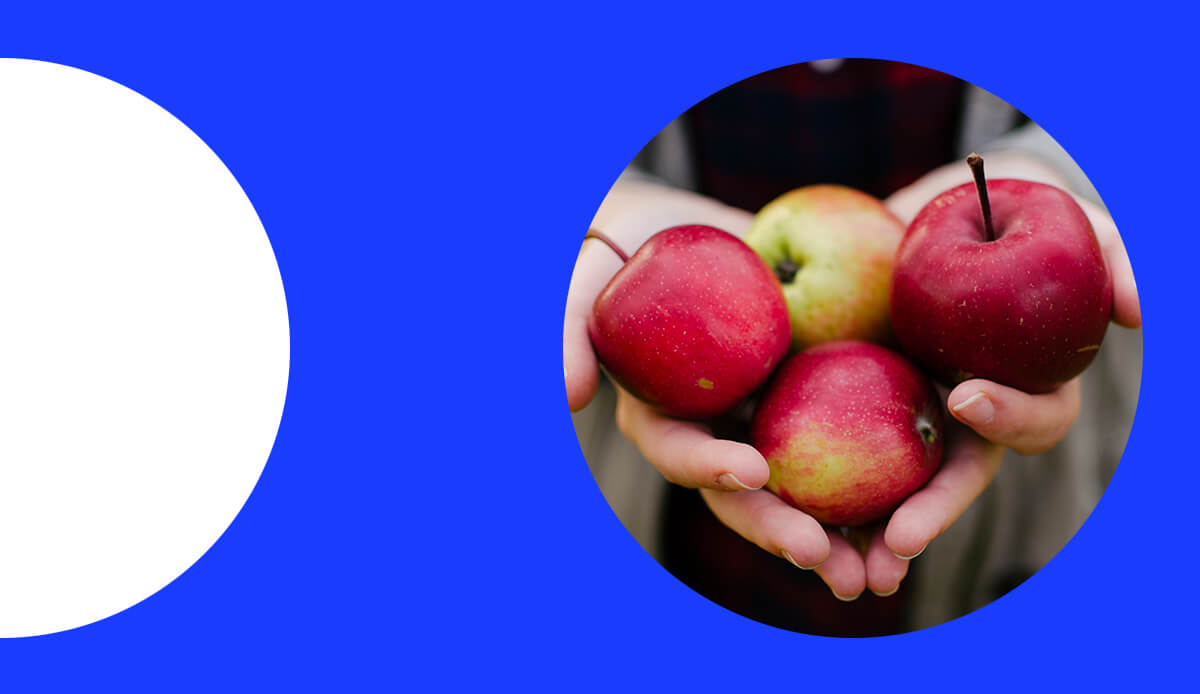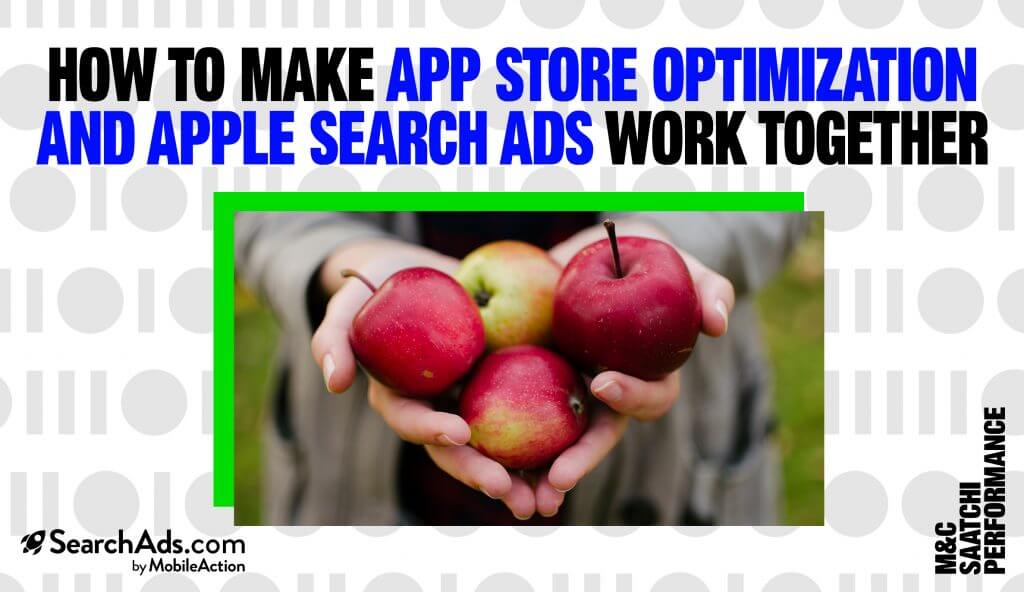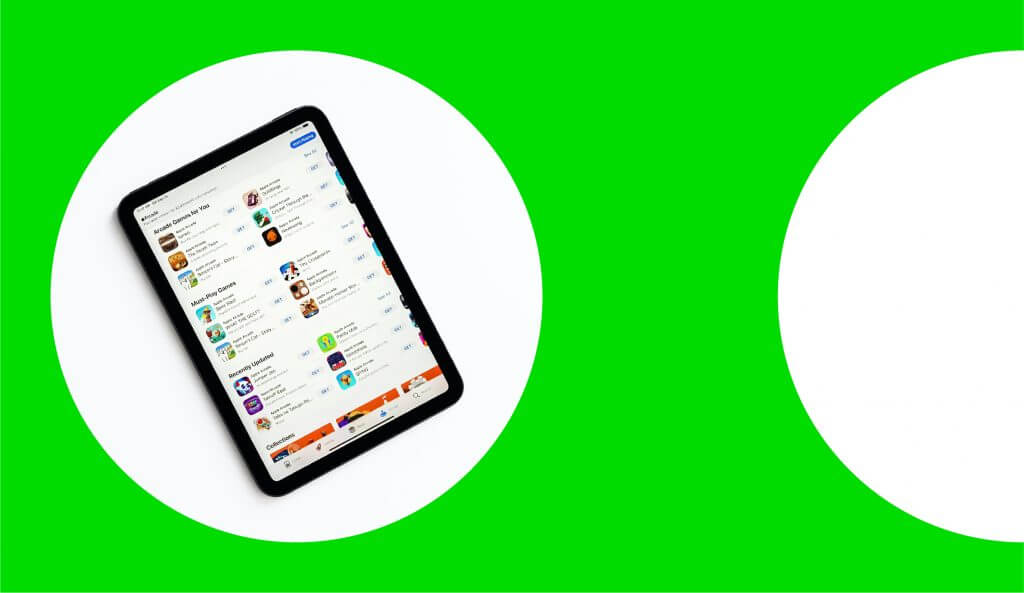Making App Store Optimization and Apple Search Ads work together

Recently we were guests on a webinar with App Store specialists MobileAction. During the session Global Head of ASO, Lauren Park, Managing Partner, Jonathan Yantz, and Emre Bilgic, Apple Ads Client Partner at MobileAction discussed how to make App Store Optimization (ASO) and Apple Search Ads (ASA) work together.
You can watch the full webinar here, and read on for a summary of the talking points covered in the session.

Key takeaways:
- High-quality traffic can have a knock-on positive impact on your App Store Performance, therefore Apple Search Ads can help to boost App Store Optimization results
- Do not be afraid of cannibalization, instead think of paid and organic activity working together to increase performance overall.
- Creative optimization and testing of the storefront can pay dividends as the algorithm takes historical data into consideration
What is impacting App Store Optimization today?
Apple launched Product Page Optimization (PPO) and Custom Product Pages (CPPs) at the end of 2021, which brought about significant changes to the App Store. On top of this, we’ve been seeing algorithm shifts and ongoing optimization of keywords depending on where keywords are struggling to rank. On the flip side, the constant factors that have remained are conversion rate and download velocity, which have always had a huge impact on rankings in the App Store and remain a huge part of strategy and optimization. Download velocity also feeds into the algorithm and remains a constant factor to be aware of and monitor.
When comparing conversion rate vs keyword optimization, which is more effective?
This really does depend on the app, but as a generalization, if you have never optimized your storefront in the App Store, you will not see the benefits of keyword optimization. We often find that internal teams struggle for design resource and therefore focus on keywords. However, given that the algorithm takes into account historical data, any poor historical keyword performance will be factored into future keyword updates, hurting your app in the long run. Therefore conversion optimization is a good place to start testing; we find that even if you test the storefront a little you will see the benefits of this testing in keyword optimization.
Why are Apple Search Ads essential to App Store Optimization?
The impact varies based on your overall media mix, but we think about quality traffic and therefore how high-quality paid traffic can impact organic activity. Apple Search Ads are similar to traditional PPC, in that they are keyword-based and capture intent. People actively searching for your brand have a higher likelihood to convert and provide more quality than people searching for a related or generic keyword. Once you add other channels to the mix (such as Display, Social, Video, etc.), these channels may not capture the same level of intent as search ads, which could impact traffic quality when they land on your storefront.
The App Store algorithm factors in conversion rate in ASO which has a huge impact organically, so testing channels that provide higher quality traffic is a good idea to protect the conversion rate, and therefore ASO performance.
iOS 15 brought native testing features such as Product Page Optimization. How is this new feature working?
Product Page Optimization (PPO) can be an effective tool, though currently you can only run one test at a time. PPO does now provide options that didn’t exist previously and there is a huge opportunity to run testing without costly third-party testing tools. There is no downside to running PPO, as you will gain learning even with the teething issues. Working closely with your product team is a good idea, as this will enable joined-up testing and utilize Product Page Optimization.
How about Custom Product Pages?
We’ve tested Custom Product Pages for some clients and we see varied results. The good news is that we do see overall improved performance and an improvement in the Cost per Tap (CPT) and Tap-through Rate (TTR). Of course, the knock-on effect is that these KPIs also can impact organic by providing positive signals of high intent to the algorithm.
The downside is the volume of creative required to enable the development of distinct ad variations, but it is worth having a testing roadmap in place. One thing to consider is ensuring there is enough difference in the ad variants you’re testing against the default ad to ensure you get clear, actionable results.
How should mobile marketers think about testing these channels?
Test as much as you can and have a clear roadmap, for example if you are a retailer then start now ahead of the holiday season to prep for peak sales periods. Retailers especially should use the off-season to test as much as possible, you can then validate these results during the peak shopping seasons.
There are a lot of parallels with traditional Pay Per Click (PPC) and you have to be hands-on in the channel. Always treat the store listings in the same way as your homepage and make sure the best offers and content are visible for customers to really drive conversion. Compare year-on-year KPIs and if you are seeing efficiencies now, then increase spend ahead of the holidays when the competitive nature of the season will drive up costs. The traditional season is starting much earlier so be aware of that and ask your agency or Apple themselves to provide benchmarks so you can really understand what you need to do ahead of the holidays.
Case Study
At M+C Saatchi Performance, we carried out research to measure the relationship between paid and organic within the App Store, and to review if cannibalization was occurring. We wanted to understand if bidding on keywords for the first time impacted corresponding organic rankings. Our hypothesis was that if people are not clicking on the organic placement this will feed into the algorithm and affect rankings negatively. Our results showed that when paid activity was applied to the keywords for the first time we saw significant improvements in keywords that were already ranking.
Context:
We had just started running App Store Optimization for our client and had previously run Apple Search Ads.
Strategy:
Firstly, we carried out ASO and successfully improved organic ranking performance. Then measured the paid performance of the keywords we organically improved.
We then looked at a group of keywords that the Apple Search Ads team started bidding on for the first time, and looked at the impact this had on the organic performance. We found that keywords ranking organically saw a significant improvement in rank position when the team started biddings on those terms, showing that cannibalization was not occurring (an app can only rank if there are converting users on that keyword, therefore if people were just clicking the paid ad and not the organic ad, then the organic rank position would drop not improve).
Results:
- 21% reduction in Cost Per Acquisition
A word from our contributors
“When it comes to paid or organic traffic, the app store does not differentiate between download velocity, therefore can boost keywords and can act as a double benefit.” Emre
“One tactic is not necessarily better than the other, paid and organic have to go hand in hand, and ideally you should do both.” Lauren
“We’re starting to see a lot more innovation in what we can do from the paid Apple Search Ads side of things and how this impacts performance, not just organically in the App Store but learnings can be applied elsewhere. These are hands-on channels that require constant testing; monitoring frequent and granular optimizations is required to really get the benefits of these channels”. Jon
Thank you to Jonathan, Lauren and Emre!
Jonathan Yantz was recently promoted from Director of Search & Social to Managing Partner Americas. Jon has managed Apple Search Campaigns for many years across a wide range of clients.
Lauren Park manages a team specializing in App Store Optimization from London. Lauren has spoken at length on the subject of how to optimize ASO and is an authority on the subject.
Emre Bilgic is an accomplished ASO and Apple Search Ads expert and joined the MobileAction & SearchAds.com team in 2021. Emre provides partners with invaluable guidance on App growth.
Interested in finding out more about Apple Search Ads or App Store Optimization?




